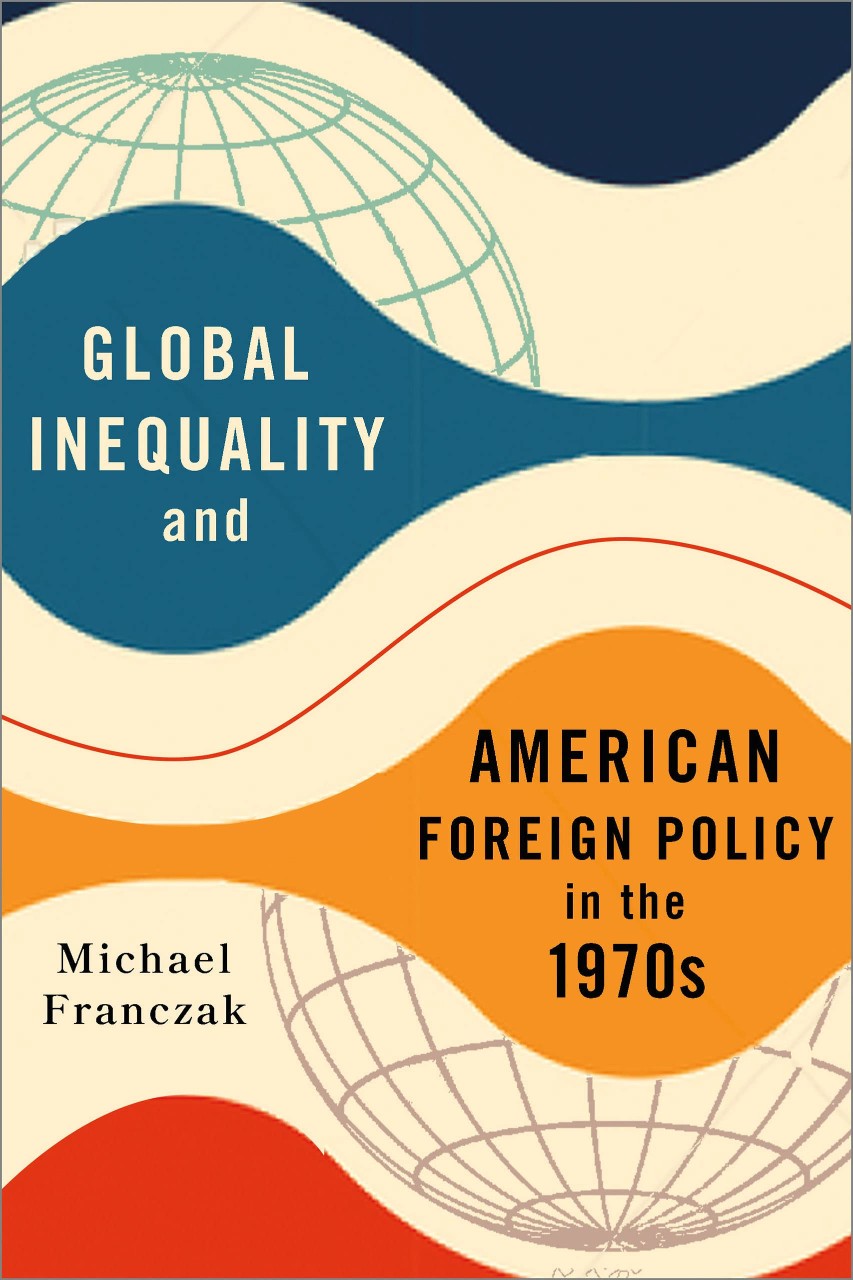

School Notes
Date posted: May 31, 2022

In Global Inequality and American Foreign Policy in the 1970s, Michael Franczak demonstrates how Third World solidarity around the New International Economic Order (NIEO) forced US presidents from Richard Nixon to Ronald Reagan to consolidate American hegemony over an international economic order under attack abroad and lacking support at home. The goal of the nations that supported NIEO was to negotiate a redistribution of money and power from the global North to the global South. Their weapon was control over the major commodities―in particular oil―that undergirded the prosperity of the United States and Europe after World War II.
Using newly available archival sources, as well as interviews with key administration officials, Franczak reveals how the NIEO and "North-South dialogue" negotiations brought global inequality to the forefront of US national security. The challenges posed by NIEO became an inflection point for some of the greatest economic, political, and moral crises of 1970s America, including the end of golden age liberalism and the return of the market, the splintering of the Democratic Party and the building of the Reagan coalition, and the rise of human rights in US foreign policy in the wake of the Vietnam War. The policy debates and decisions toward the NIEO were pivotal moments in the histories of three ideological trends―neoliberalism, neoconservatism, and human rights―that formed the core of America's post–Cold War foreign policy.
Cornell University Press, June 15, 2022
About the Author
Michael Franczak is a PhD graduate from the Boston College History Department and is now a Postdoctoral Fellow in Global Order at the University of Pennsylvania's Perry World House.
Review
"Michael Franczak's extremely insightful and readable account of the US confrontation with the global South gives agency to leaders of developing nations without exaggerating their leverage in an unequal world. A sparkling book."
-- Quinn Slobodian, Wellesley College, author of Globalists
"Franczak's book is the fullest, most thorough account of US policy on North-South issues from the Nixon through Reagan administrations. A considerable?and impressive?accomplishment."
-- Daniel Sargent, UC Berkeley, author of A Superpower Transformed
"Franczak's book is a deep archival dive into the evolving response of US administrations to the global South in the 1970s, amid the demands for?and fear of?a New International Economic Order. No one has done this better."
-- Robert Vitalis, University of Pennsylvania, author of Oilcraft
"A kaleidoscopic view of America's response to the movement for a New International Economic Order. Franczak vividly reconstructs the internal debates surrounding Third World demands across four presidencies, demonstrating how the North-South struggle changed the course of US foreign policy."
-- Christy Thornton, Johns Hopkins University, author of Revolution in Development
"Franczak's timely book is the first to openly address global inequality as a key US foreign policy issue of the 1970s, one that has shaped the nature of globalization today."
-- Giuliano Garavini, Roma Tre University, author of The Rise and Fall of OPEC in the Twentieth Century
"Scholars often overlook how political reactions to the NIEO helped to set the scene for the era of neoliberal globalization. Franczak's detailed analysis of US policy toward the initiative reminds us of the importance of this episode in international economic relations."
-- Eric Helleiner, University of Waterloo, author of The Neomercantilists
Review
"Scholars often overlook how political reactions to the NIEO helped to set the scene for the era of neoliberal globalization. Franczak's detailed analysis of US policy toward the initiative reminds us of the importance of this episode in international economic relations."
-- Eric Helleiner, University of Waterloo, author of The Neomercantilists